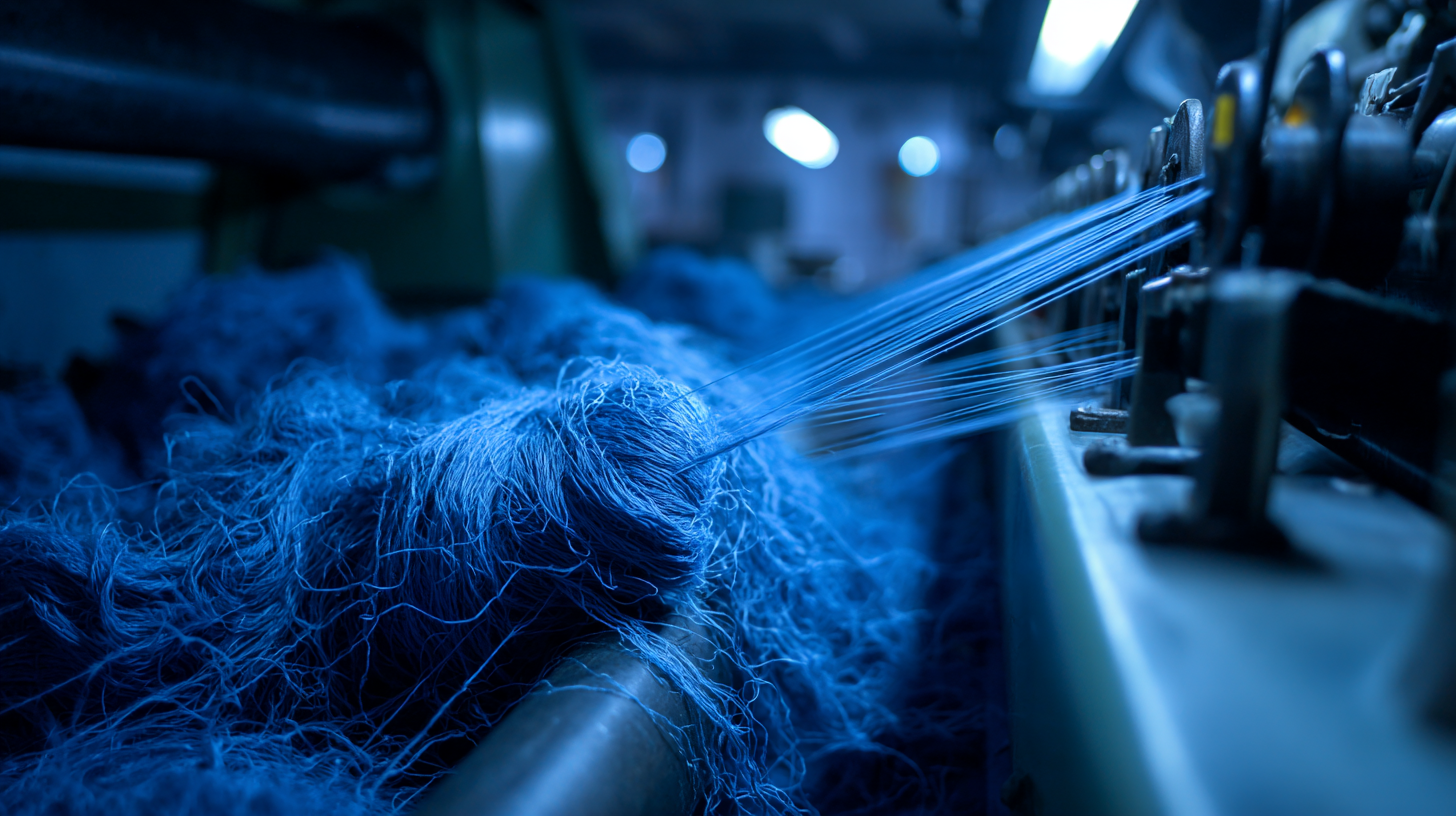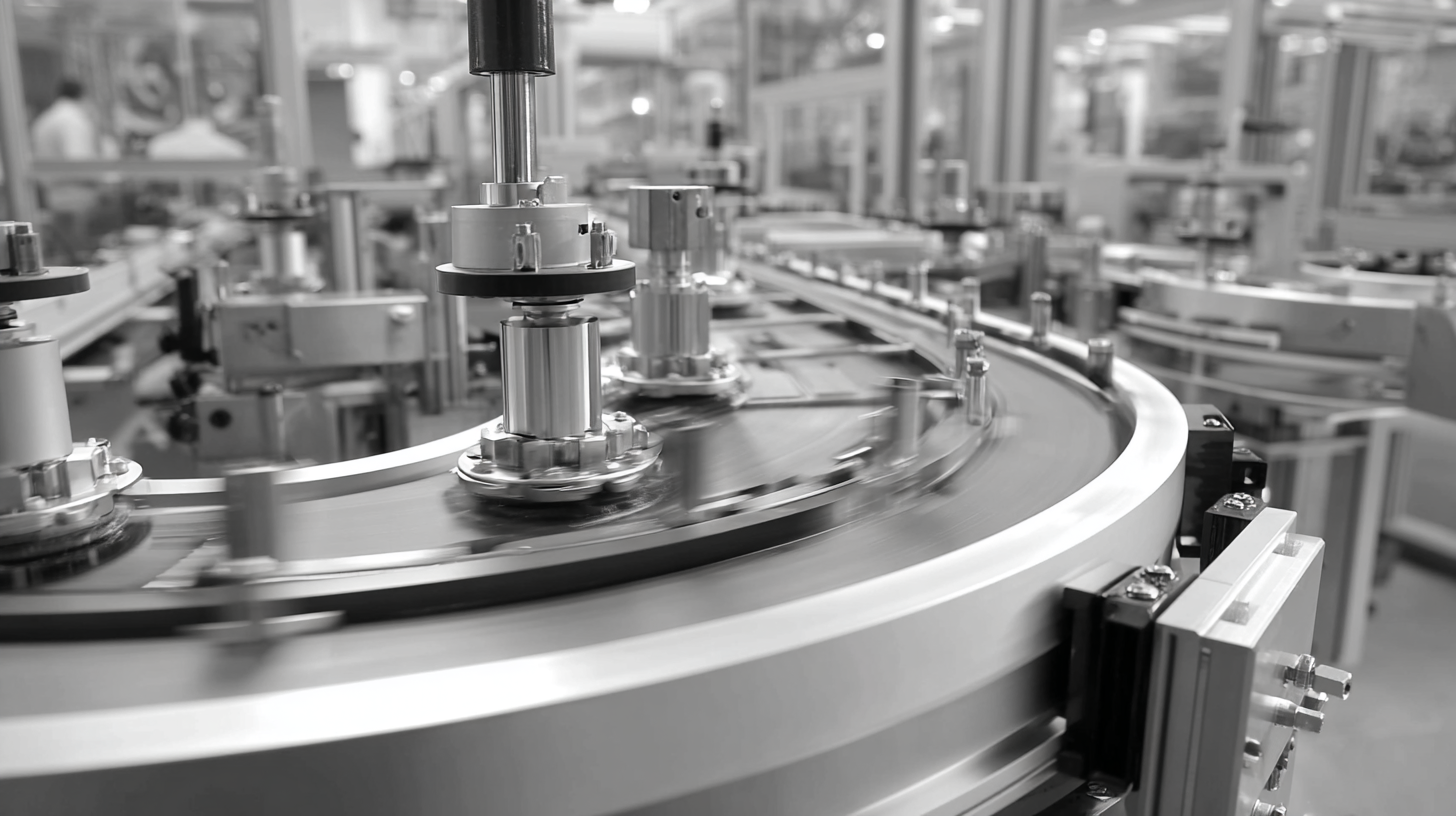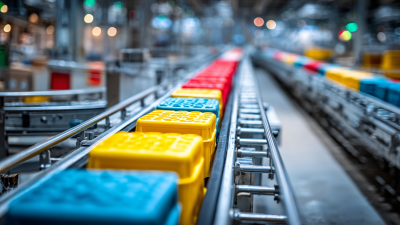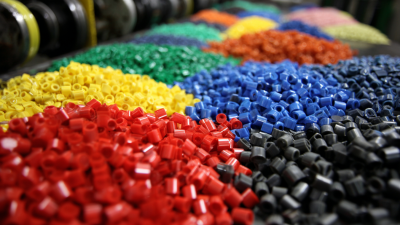How to Optimize Your Production Process with Poly Plastic Solutions
In today's fast-paced manufacturing environment, optimizing production processes is crucial for maintaining competitiveness and efficiency. One innovative approach that has gained prominence is the integration of poly plastic solutions in various stages of production. Poly plastic materials are not only lightweight and durable but also offer versatility that can significantly enhance operational workflows. By leveraging the unique properties of poly plastic, manufacturers can streamline processes, reduce waste, and improve product quality.

In this blog, we will explore effective strategies and practical tips for incorporating poly plastic into your production process, ensuring that you can maximize productivity while minimizing costs. Whether you are a small business or a large corporation, understanding how to effectively use poly plastic can be a game changer in your manufacturing operations.
Identifying Key Areas for Improvement in Your Production Process
When it comes to optimizing your production process, identifying key areas for improvement is crucial for enhancing efficiency and reducing costs. One effective approach is to conduct a thorough analysis of your current workflow. Look for bottlenecks such as delays in material supply, long changeover times, or excessive waste. By pinpointing these issues, you can implement targeted solutions that will streamline operations.
Tip 1: Invest in employee training. Ensuring that your team is well-versed in efficient practices and the latest technologies can lead to significant improvements. Regular training sessions can empower staff to identify inefficiencies and suggest innovative solutions.
Tip 2: Utilize Poly Plastic Solutions strategically. These materials are not only durable and versatile but can also optimize packaging and storage. Evaluate your use of plastics in your processes to ensure that it is aligned with your efficiency goals, reducing waste and enhancing productivity.
Tip 3: Monitor performance metrics. Establishing key performance indicators (KPIs) allows you to track improvements over time. By continuously monitoring these metrics, you can make informed decisions and adjust your strategies as needed for ongoing optimization.
Exploring the Benefits of Poly Plastic Solutions for Your Business
When considering ways to enhance efficiency and profitability in production,
poly plastic solutions stand out as a transformative option for businesses across various industries.
Research from the Plastics Industry Association indicates that the global demand for plastic products is
projected to reach 1,200 million metric tons by 2025, with poly materials leading the charge due to their
versatility and cost-effectiveness. By integrating poly plastic solutions into production processes,
companies can leverage lightweight materials that not only reduce material costs
but also lower shipping expenses, improving overall operational efficiency.
Furthermore, studies by the American Chemical Society have highlighted that poly plastics can significantly
decrease the environmental impact of production. With advancements in recycling technologies,
poly plastics are increasingly being reused, leading to a circular economy approach that many businesses are adopting.
Reports show that using recycled polyethylene can reduce carbon footprints by as much as 50%,
making it an eco-friendly choice that meets consumer demand for sustainability.
This dual benefit—enhanced productivity and reduced environmental impact—makes poly plastic solutions a
strategic investment for businesses aiming to optimize their production processes while fulfilling corporate
social responsibility goals.
Implementing Efficient Poly Plastic Materials in Your Production Line
Implementing efficient poly plastic materials in your production line can significantly enhance productivity and reduce costs. Polypropylene and polyethylene are among the top materials favored by manufacturers due to their lightweight properties and impressive chemical resistance. According to a recent report from the Plastics Industry Association, the use of poly plastics in production has led to a 20% rise in efficiency in sectors such as automotive and consumer goods. This shift showcases not only improved output but also a decrease in material waste, contributing to more sustainable manufacturing practices.

Tip: Assess your current supply chain for poly plastic materials. Partnering with suppliers that offer high-quality resins can prevent production delays caused by material shortages. Regularly reviewing supplier performance can optimize your procurement process and keep your production line running smoothly.
Incorporating advanced poly plastic solutions means adapting to a more dynamic production environment. Manufacturers using multi-layered poly materials, such as co-extruded plastics, have reported a 15% reduction in energy consumption during the production process. By exploring innovations like these, companies can streamline operations and create products that meet modern-day demands.
Tip: Schedule regular training sessions for your production team on the latest poly plastic processing technologies. Keeping your workforce informed and skilled in using these materials can lead to higher product quality and fewer defects in your final output.
Best Practices for Monitoring and Adjusting Poly Plastic Usage
To effectively monitor and adjust poly plastic usage in your production process, implementing real-time tracking systems is essential. By utilizing sensors and software solutions, you can gain insights into how much plastic is being used at each stage of production. This data not only helps in identifying potential wastage but also enables you to forecast future needs more accurately.
Tip: Consider integrating an automated inventory management system that alerts you when plastic supplies are running low or when usage patterns deviate from the norm. This proactive approach minimizes downtime and ensures you're always operating at optimal efficiency.
Another best practice is to conduct regular audits of your production process to evaluate poly plastic usage. By reviewing operational procedures and assessing areas where plastic can be reduced or substituted with eco-friendlier alternatives, you can enhance sustainability while maintaining quality.
Tip: Encourage your team to participate in brainstorming sessions focused on waste reduction initiatives. Their hands-on experience can provide valuable insights that lead to innovative solutions for minimizing poly plastic usage in your production line.
Production Efficiency of Poly Plastic Solutions
Case Studies: Successful Integration of Poly Plastic Solutions in Production
The integration of Poly Plastic Solutions into production processes has yielded remarkable results, as evidenced by numerous case studies demonstrating their effectiveness across various industries. For instance, the automotive sector has reported a 15% reduction in weight and a corresponding 5% increase in fuel efficiency by employing advanced poly plastic materials for vehicle components. A report by the Society of Automotive Engineers highlights that lighter cars not only consume less fuel but also produce lower emissions, aligning with global sustainability goals.
In the packaging industry, companies utilizing poly plastic solutions have noted a significant decrease in material waste and an increase in product shelf life. According to a study from the Flexible Packaging Association, switching to poly plastic materials can lead to a 20% reduction in packaging costs while enhancing durability. A notable case involved a major food and beverage company that re-engineered its packaging line, resulting in a 30% increase in production speed without sacrificing quality. Such examples underscore the profound impact of poly plastic solutions in optimizing production efficiency and sustainability.

Related Posts
-

7 Essential Tips for Sourcing Plastic Parts Globally
-

What is Poly Plastic and How it Revolutionizes Packaging Solutions in 2023
-

7 Amazing Benefits of Using PVC Material in Modern Manufacturing
-

How to Choose the Right Injection Molding Materials for Your Project Success
-

Ultimate Guide to Selecting the Right Injection Molding Tooling for Your Business Needs
-

Unlocking Efficiency: The Advantages of Utilizing Plastic Caps in Packaging Solutions
